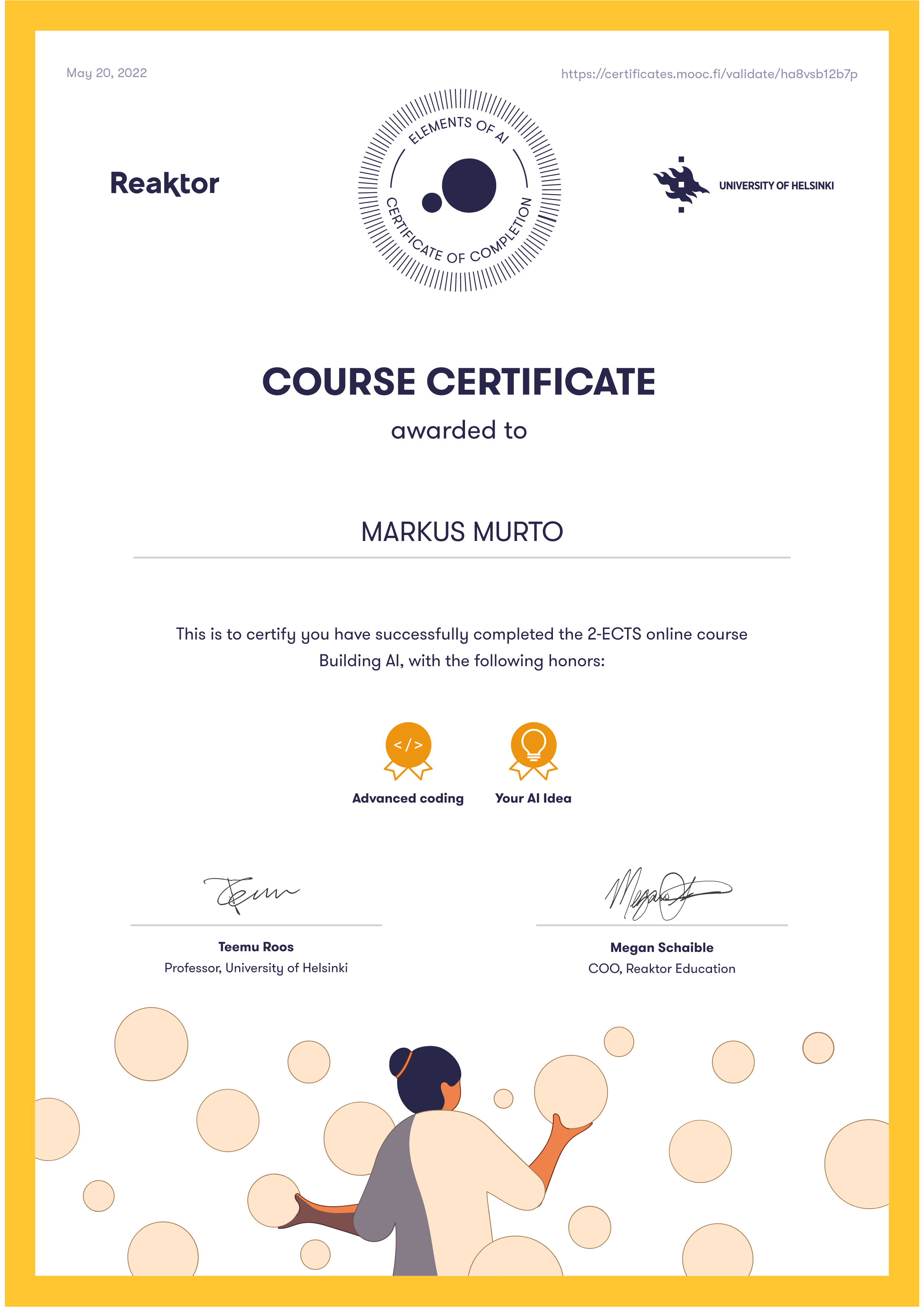title: "AI idea: Book recommendator" subtitle: Building AI course author: Markus Murto date: \today lang: en-GB block-headings: true papersize: a4 header-includes: | \usepackage{hyperref} \hypersetup{colorlinks, urlcolor=blue} ...
Book recommendator
My AI idea for the Building AI course.
Summary
The book recommendator AI recommends book titles based user ratings on similar titles which in turn are determined by Topical Terms defined in the of MARC 21 compliant data store. User ratings are gathered from the user and the Topical Terms are fetched from an internal library information system. The application would be accessible only internally for librarians.
Background
Book worms might consider the existing solutions, for example from Goodreads, to be inadequate or not accurate enough. The idea is to use the internal data used in library catalogue systems, which can contain more useful and comprehensive keywords to determine appropriate books for recommendations.
The list of keywords used in library system is also more reliable and regulated compared to amateur user generated keywords. In Finnish libraries YKL (Yleisten kirjastojen luokitusjärjestelmä) regulates which keywords are used, so there should not be overlapping or inconsistent keywords in the data set.
Data sources and AI methods
The main data used to distinguish different kind of titles from each other would be the 650 Topical Term field in an internal library MARC 21 compliant cataloguing system. Regular expressions should be a sufficient method of parsing the field.
The 650 field often contains between 5 and 15 different standardised terms, so the field can be an accurate way to categorically classify different kind of books. The different books could be classified using a unsupervised clustering algorithm. This could be for example K-means clustering algorithm.
Each user can give ratings from 1 to 5 (5 star rating scale) which is then used to classify for each user which kind of books they like. As different book types are clustered in advance, a linear regression model could be powerful enough to find suitable book clusters for a user using the number of books read in each cluster and the rating given to each read book by the user.
How it is used
Ideally the application would be deployed in the library internal network, to enable access to the MARC 21 compatible cataloguing system used in the library, which is likely fire-walled to be only accessible from the internal network.
The application would present a web interface to users, in which the user can insert which books they have read and rating on 1 to 5 scale to each book. The application would present a selection of books the user have not read which the model has determined to be suitable recommendations; which books the user likely would give a high rating.
Additionally the application could include user defined filter, if a user wants to categorically exclude certain types of books. For example a user might want to avoid books about war.
Challenges
Especially the clustering algorithm, which classifies the books in the library, would need to be refitted regularly as the library catalogue, and the topical terms used in it, is constantly changing.
Books with no defined topical terms creates a challenge for the application as they would have to be dropped out of the model until they have been given at least one topical term. Preferably the books would have more than few topical terms defined.
What next
The idea would need to be tested with real world data to find which algorithms are actually workable with this kind of data. The K-means and linear regression are virtually just guesstimates which could maybe work. Also the whole idea of using two different algorithms should be reconsidered, if it would be more appropriate to use one complex algorithm instead.
In the deployment environment there would be need for dedicated personnel to fill in gaps in the data: books which currently have no topical terms defined.
Acknowledgements
I would like thank my librarian friend nicknamed Nalice for verbose information on library catalogue system.
